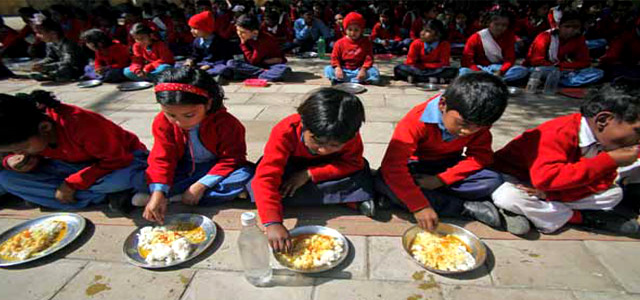
The Midday Meal Scheme is a school meal programme of the Government of India designed to improve the nutritional status of school-age children nationwide. The programme supplies free lunches on working days for children in Primary and Upper Primary Classes in Government, Government Aided, Local Body, Education Guarantee Scheme, and Alternate Innovative Education Centres, Madarsa and Maqtabs supported under Sarva Shiksha Abhiyan, and National Child Labour Project schools run by the Ministry of Labour. Serving 120,000,000 children in over 1,265,000 schools and Education Guarantee Scheme centres, it is the largest such programme in the world.
Supreme court order
In April 2001, People’s Union for Civil Liberties (PUCL) initiated the public interest litigation (Civil) No. 196/2001, People’s Union for Civil Liberties v. Union of India & Others (PUCL) – popularly known as the "Right to food" case. PUCL argued that Article 21 – " Right to life" of Indian Constitution when read together with Articles 39(a) and 47, makes the Right to Food a derived Fundamental Right which is enforceable by virtue of the constitutional remedy provided under Article 32 of the Constitution. PUCL argued that excess food stocks with the Food Corporation of India should be fed to hungry citizens. This included providing mid day meals in primary schools. The scheme came into force with the Supreme Court order dated 28 November 2001, which requires all government and government-assisted primary schools to provide cooked midday meals.